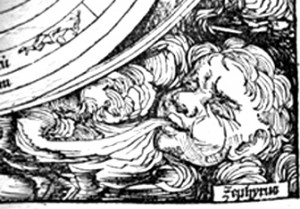Back in our nod to debt grief we asked a core question “Do we have power to release ourselves?”
We yearn for release, for freedom. People have done so through time, it just feels like there’s a stronger sense of entrapment in our wealthy modern world than there really should be. We are not politically oppressed, we are fed, can vote, we each enjoy a quality of life that surpasses that of even royalty just two generations ago. Why then are our quality of life surveys so constantly negative?
This is a haunting question. How can we release ourselves?
I’ve been looking for a choice for us to consider and I was told it would come from an unusual source. I looked and listened and scribbled notes and got nowhere waiting for a teacher to give a hint. Then, while down at the waterfront watching kites, a little toddler said “Follow the wind” and she faced into the breeze and closed her eyes in total bliss. A-HA!
 In that moment she gave us all a reminder of what it is to be free. She reminded us that our shackles are mostly illusions. She saw through to the core of the situation and with her sharp sword of insight she sliced the knot in two.
In that moment she gave us all a reminder of what it is to be free. She reminded us that our shackles are mostly illusions. She saw through to the core of the situation and with her sharp sword of insight she sliced the knot in two.
Well that’s how it was for me, let’s unpack it together.
Freedom is not living in some vague, future utopia that will appear one day without any effort from us. It isn’t a ‘better’ that we can just buy. It is hard to say what it really is anymore because for most people freedom has begun to sound like an advertising slogan or an empty rhetorical stick that a politician uses to make a complicated important issue into a knee-jerk response. Our hearts are gummed up with this foul misuse. At best, we visualise a long holiday, but without the boredom.
But children know what it is. They don’t need to reference a dictionary meaning. They don’t fret about their own value or what curiosity will cost them. We know that freedom is not the same as being childish, but here’s a tantalising clue to lead us back into the right direction.
Our pets know what it is. They don’t even need human language to show us joy in the now and pure experience of whatever the moment is holding. Pets might be tame, but they stay free in a way we deeply envy. You’ve probably met someone who lives through their pet’s experience of the world. We know that freedom is not the same as being wild, but here’s a delicious scent of the juicy potential we used to have.
We know what it is not. We know somehow that these wage-slave lives where people worry about a 3 percent rise in interest rates, or how will they pay for getting any kind of sick that their insurance doesn’t cover aren’t it. Spending a year planning how to use a few weeks off to have a ‘decent break’ isn’t freedom, especially when no-one else does the work while you’re away. Triple jeopardy points if you paid for that ‘break’ on credit. That doesn’t feel like freedom. We know that it isn’t really having two aisles of soft drink options in the supermarket or having more than 67 brands of cars to select from but somehow that’s what we agreed to accept somewhere along the line and now it is set in stone.
Well, that little girl reminds us that it is not set in stone. That many of the social conditions that we accept and treat as invincible are actually as fragile as a house made out of straw. There are a number of ways that if we huff and puff we could see them fall in. Do you remember how the global economy had a hiccup a few years back over some little ‘misunderstanding’? That was a good example of how things that we’re used to being bullied around by can actually turn out to be rotten or even simply a façade. We get to make a choice about how we participate in our society. We are actually in charge of how we participate.
We are actually in charge of how we participate.
We are actually in charge.
Those companies, those governments, those councils, banks and credit card companies, they all work for us. They’ve forgotten that and most importantly so have we, Everything can be different. They are not invincible. They are not the only way or the single answer. The wind blows the whole way around the earth. The wind blows into every home, every village, it blows across our faces and it whispers ideas into our ears. Welcome the wind and welcome the hope back into your heart. We are all in this together. Take a moment now and feel this, you have something in your hands that we’ve all been told not to notice, to ignore it, to treat it as a bother. It is a tiller. Feel it now. Can you feel that vibration in it? That is the wind of change, the zephyr of self-determination and if you want, the rudder it is connected to that you control, can set you on a new course. Where will you go? Ask some new questions.
That’s what I heard when she suggested we “follow the wind” and I can’t thank her enough.
Image credit: Woodcut of Zephyrus from Nuremberg Chronicle, 1493


